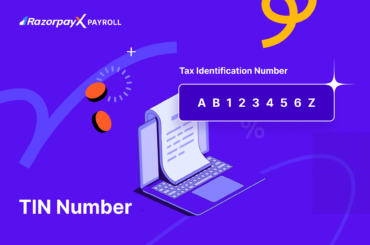HR Systems, as the name suggests, streamline human resources management. These software applications are designed to help manage various human resource functions within an organisation. From onboarding an employee to managing their records, payroll, attendance, and reporting, HR systems can perform a range of activities.
Traditionally, these components of HR Management were disjointed and rife with errors. Today, smart human resources management systems like RazorpayX Payroll have as good as fully automated most HR activities, cutting down the time to taken for processes like payroll to mere seconds.
What are HR Systems?
HR Systems are a type of software or application that helps manage, organise, and report on everything related to HR and employees in one place.
So, this platform can automate all the HR processes throughout the lifecycle of an employee in an organisation. Whether you have a small organisation or a large organisation, having an HR System can make your life easier.
Types of HR Systems
Different types of HR Systems are used to fulfil different aspects of human resource management. These include the entire life cycle of the process, which begins with three main steps:
- Recruitment – The process of identifying and gathering together the relevant pool of talent.
- Onboarding – At this stage, the employee has become a part of the company. As part of this process, the candidate learns about the company, and, in turn, submits legal documentation pertaining to identity.
- Documentation – At this stage, you’d organise your employee data into an easily retrievable format, usually fed into a human resources information system (explained below).
Human Resource Information System (HRIS)
HRIS is generally used to manage all the processes related to HR, policies, and procedures. There are multiple types of human resources information systems, depending on the use case:
- Looking for just main function support? There are tactical HRIS systems, that will help you handle the routine, critical HR activities such as recruitment, onboarding, and so on.
- Looking for daily HR support? Go for operational HRIS that will help you with pay, attendance and so on.
- Looking for something more strategic? You’ll find strategic HRIS that go beyond the basics – think HR aspects such as employee engagement.
Human Capital Management (HCM)
This HR System helps train the employees and their development which ultimately leads to talent management. It can include course management, training tracking, certification management, and e-learning capabilities.
Human Resource Management Systems (HRMS)
This application is similar to HRIS. However, it offers additional features like payroll management, HR analytics, compliance and reporting. For example, RazorpayX Payroll Software can automate you entire payroll process – from disbursing salaries to filing taxes, this smart payroll automation tool will make your job easier and more organised.
Key Features of an HR System
Features of an HR System will depend largely on the type of system that you have, and the scope of the software application that you have chosen. However, the common features of HR systems are listed below:
Employee Data Management
A good HR system will facilitate the storage, maintenance and tracking of employee data. Data should be stored in an easily accessible yet highly secure way, allowing both HRs and employees to upload and download documents, form and payslips with ease.
Payroll Management
HR systems have payroll management functionalities which process salary, calculate and file tax deductions, manage benefits and compensation and other payroll-related processes.
Employee Self-Service
An employee self-service portal is a very important feature within an HR system. It is a platform for employees to carry out HR functions independently. It should have functionalities like payslip management, document upload and download, tax calculations, applying for leaves, and more.
Performance Management
HR systems allow employees to create their goals and track their performance. It makes the tracking of targets vs achieved easier by the reporting managers as they can review and share feedback accordingly.
Integrations and Automations
Robust HR systems have integrations – tools that connect with your existing business processes and software. RazorpayX Payroll has dozens of integrations with top tools like Slack, Whatsapp, Plum and more, making your payroll and HR management effortless.
Benefits of Using HR Systems
Using an HR system for your organisation can result in various benefits that can significantly contribute towards its growth.
Here are some benefits of using an HR system:
Cost Savings
The top benefit of using an HR system is the cost saving. Automated HR processes are less error-prone and faster, saving time and preventing costly mistakes. According to this study by Ernst & Young, the cost of manually processing HR tasks like performance management, expense management, training and onboarding can go as high as $19, or Rs 1500 per task.
For a business with even 10 employees, processing salaries every month can take up an entire week and cost the business several lakhs a year.
Increased Efficiency
When you choose to automate your HR management system, it effectively streamlines the payroll processing, benefit administration, and tracking of employee performance. This as a result helps the HRs to focus on strategic initiatives to help accelerate growth.
Improved Accuracy
An automated HR system reduces the chance of calculation errors in payroll management. The data handling and reporting remain consistent throughout.
Better Data Management
As this system of managing HR-related activities also consolidates all the employee-related data into a single system, it becomes easier to access, and manage the details. Also, it reduces the probability of discrepancies.
Enhanced Employee Experience
The HR System allows employees to view and manage their information and other tasks such as leave requests. Employees can easily manage their leaves and apply for regularisation as and when needed at their fingertips.
What Should an HR System Do?
Secure data access
A good HR system should provide safe and easy access to employee data. Information like bank account details, performance and appraisal details, personal identification information and more should be stored safely and securely in the HR system. Beyond just employee information, HR systems should not just store employee information but also information on compliance and taxes, payroll processes and more.
Automate HR tasks
A good HR system simplifies tasks; a great HR system automates them, so these tasks are completely eliminated from the HR manager’s to-do list. Automating tasks is cost- and resource-effective and also significantly minimises the risk of errors or delays.
Engage employees
A good HR system should have employee engagement features because they are essential for fostering a positive work environment, improving organizational performance, and driving long-term success.
Some examples of employee engagement tools are pulse surveys, rewards and recognition systems, wellness and mental health assistance, etc.
How to Choose the Right HR System
Now that we’ve understood what HR Systems can do for businesses, let’s dive into some great options to choose from. But before that, here are some important questions to ask:
- Can the HR system grow with my business? Great HR systems should be scalable. Business fluctuates, and is unpredictable. But you can’t keep changing your hr systems every time there’s a change. You need an HR system that is flexible to your changing requirements.
- How safe is the data? HR systems store large amounts of data. RazorpayX Payroll doubles down on its data security features to ensure there’s not even the remotest chance of any compromise.
- How much value will it add? Data management is just one aspect of HR systems. Sure, it’s important. But what if your HR system can also give you actionable insights that help you make great decisions, especially those that can help you create a healthier work environment?
- What’s the ease of use? HR systems shouldn’t feel too crowded, cramped and hard to navigate.
Best HR Systems in India
Here is a list of the best HR systems for each industry and use-case.
Most features: Zoho People
Zoho people offers a host of features all in one place – time and attendance, performance management, L&D modules, and more
Best performance management: Klaar
Klaar is a people management tool built to cut admin load for your HR department by automating tasks and eliminating duplicate tasks.
Best accessibility: Worq
Worq is a mobile-first workforce management software with cool features like AI-powered attendnace, multi-lingual support, task management and digital supervisors.
Best leave and attendance tracker: Jibble
Jibble is a time tracker tool with automatic timesheets that calculate total hours, overtime and breaks and more. Jibble comes with time tracking solutions for every industry; from construction to consulting.
Overall winner: RazorpayX Payroll
RazorpayX Payroll is India’s only fully-automated Payroll and HR management system. It comes with integrations to all the tools listed above and more, including Slack, Whatsapp, Springverify and more.
Explore RazorpayX Payroll here, or signup for a free demo below!
FAQs
What is an example of an HR System?
Learning Management System (LMS), and Applicant Tracking System (ATS) are two examples of HR Systems.
What is the role of an HR System?
The major role of an HR system is to streamline the entire human resource management system. It improves the decision-making capabilities of the team and helps the managers to review and track the performance of their employees easily.
How to choose the right HR system?
You can choose the right HR system for your organisation by considering the size of the organisation, budget allowance for the software, integration abilities with the current system, and user-friendliness of the tool.
What is the difference between an HRIS and an HCM system?
An HRIS is used for core functions such as employee data management and payroll. An HCM is used for managing the 360-degree aspect of the workforce.
What is HR analytics and what is its importance?
HR analytics is data that helps in gaining insights into the trends of your organisation’s workforce. You can assess the data and identify behaviours and patterns to help improve the performance of the employees. It will also help you deliver data-driven insights to help your organisation improve their decisions.
Does an HR System ensure data security?
Yes. HR Systems ensures data security as it holds a lot of confidential information about the organisation and all its employees. Software tools typically implement various security measures compliant with data privacy to maintain data security.
Who uses HR systems?
HR systems are used by HR professionals to manage employee data, payroll, recruitment, and performance. Managers use them to track team performance, set goals, and handle employee development. Employees interact with HR systems for tasks like submitting leave requests, accessing pay slips, and completing training modules. Executives rely on HR analytics from these systems to make strategic decisions about workforce planning and organizational growth.





